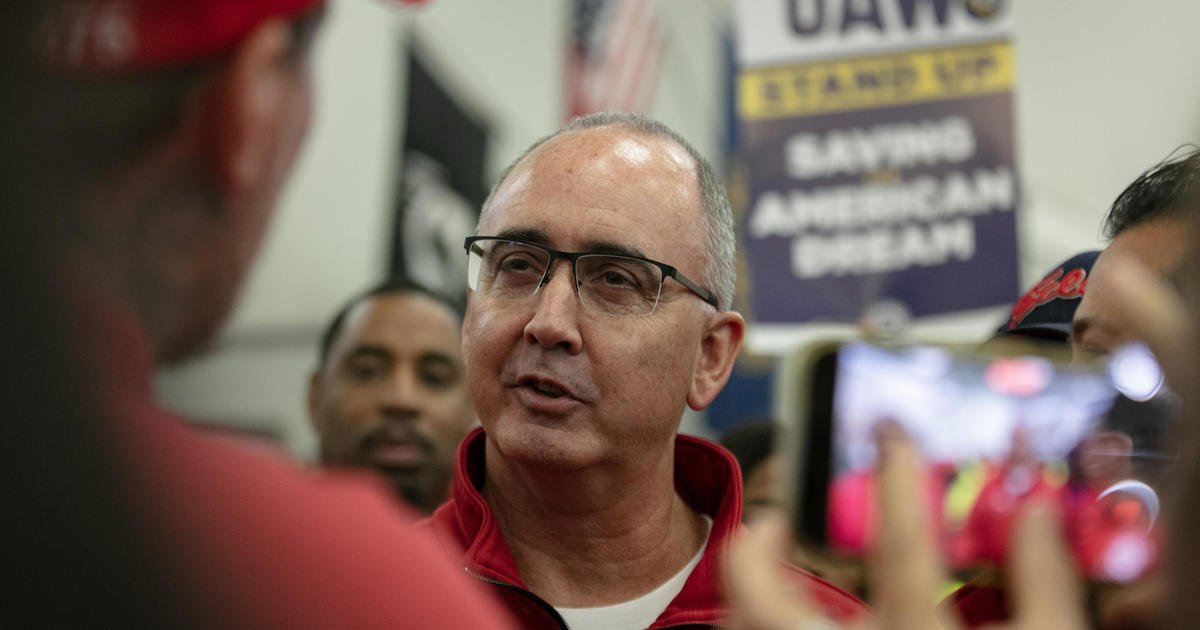Collins: Great Leadership Based On Humility
Bestselling business book author Jim Collins opened Day Two of the Detroit Regional Chamber's Mackinac Policy Conference with a rousing defense of considering the long-term and the spiritual along with the immediate profit in business.
"I love CEOs who manage for the quarter ... century," Collins said.
The author of "Built to Last," "Good to Great" and "How The Mighty Fall" said the decline of previously successful people, companies, cities and countries takes a common path of several stages, much like a disease.
Stage I, he said, is hubris -- damaging arrogance bred by success. That leads to an "undisciplined pursuit of more." Next, he said comes the stage of visibly falling -- "everyone knows you're falling," and the question is how the person or company responds -- "by grasping for salvation, a silver bullet, or a magic fix, or get back to the only things we know that produce great results." And the final stage, he said, is irrelevance.
Decline, Collins said, "can happen to anyone. No company, no organization, no nation, no society, no individual person is immune. Anyone can fail. And statistically most do. But not all."
Avoiding decline -- or recovering from it -- "lies not in outside forces or in things that you cannot control or in things that happen to you. The answer lies in choices and disciplines and actions."
Collins said companies like Xerox, IBM, Boeing and Merck bounced back from deep declines, and his analysis showed that the difference was what he called "level 5 leadership."
That leadership, he said, isn't dependent on a personality type or physical characteristics. He gave several examples of Level 5 leaders of wildly different personalities -- Darwin Smith of Kimberly Clark, whom Collins said "had a full charisma bypass -- he was quiet and shy and somewhat nerdly and wasn't even sure he should have the job," Anne Mulcahy of Xerox, and Herb Kelleher of Southwest Airlines, whom Collins called "one standard deviation from an iconoclast" who once settled a patent dispute with an arm wrestling contest in a stadium.
What do these Level 5 leaders have in common? Humility, Collins said. But it's not humility as it's generally understood.
"The signature trait between Level 4 and Level 5 leaders is humility, but it is humility of a very special type," Collins said. "It is not a softness, but it is a compulsive, utterly extreme ambition that's not about me, it's about a cause, about the company, combined with an utterly brutal willingness" to cut out organizational cancers.
Collins also asserted that "any truly great enterprise has a purpose that goes well beyond making money. That's also true of society and nations."
Collins argued that Michigan can bounce back from its difficulties: "No great institution has 100 years without setbacks or shocks or disruptions. Everybody gets hit with them. The real signature of greatness is what you do with them ... the shock that has hit this state makes it more possible to confront the brutal facts."
Collins also noted that real leadership involves what you can get people to do when they are free to say no. "If I hold a gun to your head, I can get you to do anything, but I haven't led you at all," he said.



